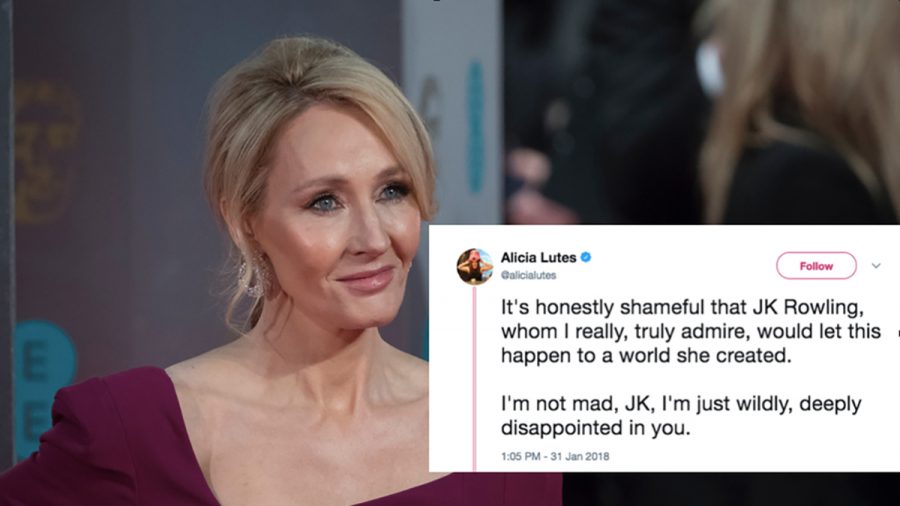How many times must I say it? Rowling strikes again
‘Passionate’, ‘intense’ Grindelwald-Dumbledore relationship not in books
More stories from Rebecca Mennecke
Photo by SUBMITTED
This kind of representation was needed from the start, not thrown in years after the fact.
This is my third time writing about J.K. Rowling and her controversies, and I’ve quite frankly had enough of it.
This time, Rowling dug herself deeper in a hole when she said the relationship between Dumbledore and Grindelwald was “incredibly intense. It was passionate, and it was a love relationship.”
Excuse me? When on earth did she say that in the books?
Rowling keeps doing this thing where she doesn’t write any specific diversity in her books, but then she keeps adding information in subsequent interviews, claiming so-and-so is gay or so-and-so is black. But, it was never specifically written that way.
When she does include details, it’s the wrong kind of details. Like, the sexual relationship between Grindelwald and Dumbledore. The Harry Potter series is a children’s book series — it shouldn’t have details like sexual relationships in it. But details like race and sexual orientation should most definitely be included in a book. Those are important representation topics that little kids need to have in their minds when they’re reading.
Fans have made it a joke at this point, and I’m right there with them; Rowling has done this one too many times. And, like our generation’s typical humor, we might as well make a joke about it. Here are some good ones I’ve found so far on Twitter:
- @queerfox : New cards against humanity card idea: “J.K. Rowling reveals that _____ was actually _______ all along”
- @dontforgetjames : Being gay isn’t a choice, it’s an involuntary thing that happens when J.K. Rowling decides it’s your time.
- @endgamesteve : Jk Rowling turning our childhood into dust
- @MoistCr1TiKaL : J.K. Rowling just revealed that the Sorting Hat is actually a homosexual time traveler
- @vegetacil : j.k. rowling reveals that you, the reader, were gay all along
All jokes aside, it makes me sick that people are tokenizing representation in order to advance their own careers or media popularity.
Now that people feel more comfortable coming out as gay, it’s easy for Rowling to lend support to the LGBTQ community, but in the years when the books began coming out, from 1997 onwards, when identifying as LGBTQ was more taboo, she didn’t make a peep.
Interesting.
I’m going to take this moment to reiterate the importance of representation in young adult literature. Harry Potter is such a widely popular book series, it could have had such power with its fan base. Young people of color or people who identify as LGBTQ could have related to characters in the books more easily if their identities were explicitly mentioned.
Plus, I feel it necessary to mention how Rowling includes representation of specifically gay men. I’ve heard it said before that straight women tend to fetishize gay men, similar to how straight men tend to fetishize lesbian women. Basically, straight women are curious of how gay relationships work, and so they try their hand at writing them when they really have no clue.
“I was surprised to find that some LGBTQ-focused stories were reflecting not me, but a straight person’s imagination of me,” Claire Rudy Foster wrote in an article “Why Are So Many Gay Romance Novels Written By Straight Women?” about queer representation in romance.
It’s a classic case of “you should really write what you know.” Or, at least, interview people who have that experience before you write about it.
But, again, it’s not even entirely a matter of “write what you know,” because Rowling didn’t even write it. She just said it in an interview.
Maybe people should just stop interviewing her, I don’t know.
In any case, Rowling needs to cut it out with adding random details just to seem hip and cool. It’s not cool. Think about representation from the get-go. That’s cool.
Problem solved.
Mennecke can be reached at mennecre0075@uwec.edu.

